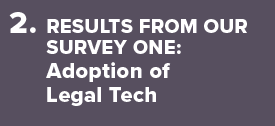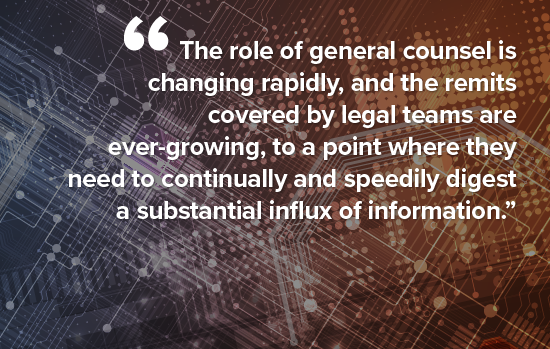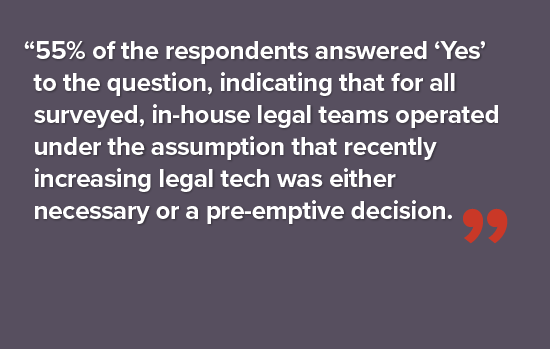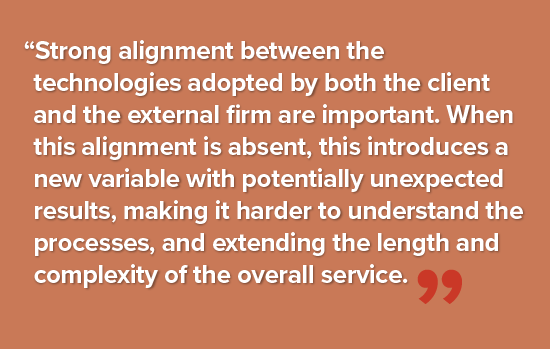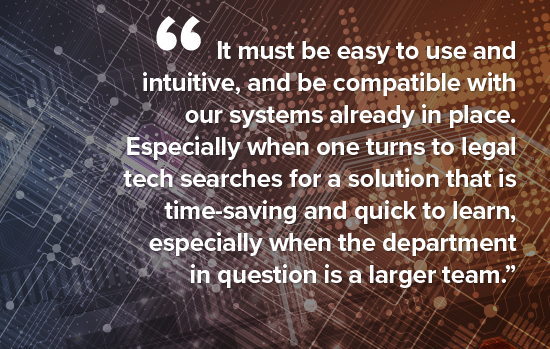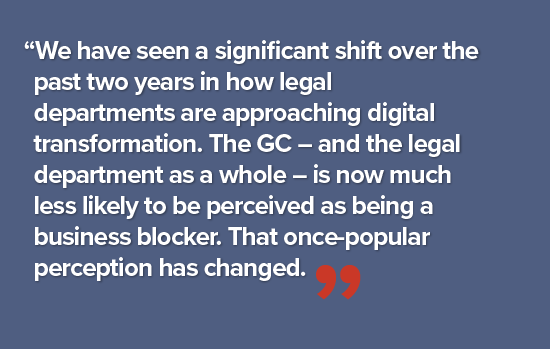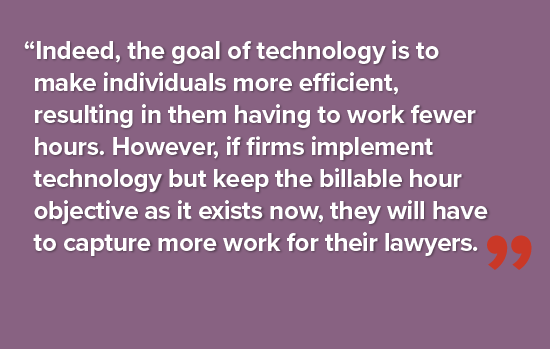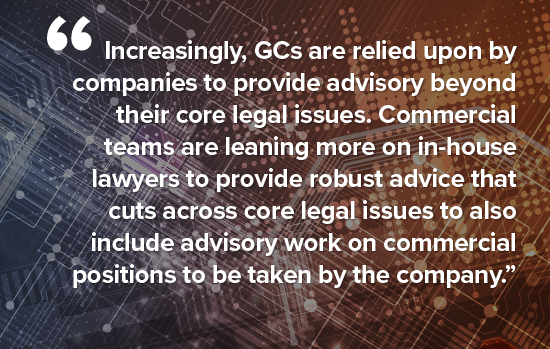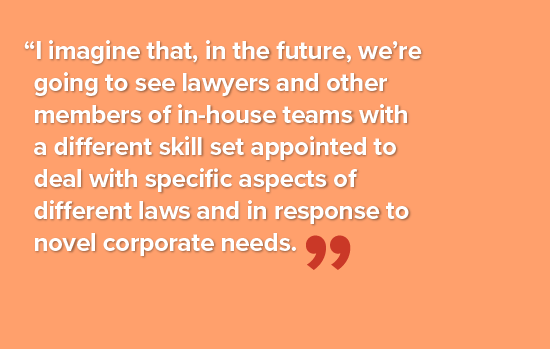GC: In-House Technology – Global Edition
World Services Group in partnership with The Legal 500/GC Magazine, has published a global series report focused on how in-house counsel and their departments are impacted by trending legal technologies. Over 200 in-house counsel leaders participated in the extensive survey and in-depth feature interviews with global and regional industry experts. More >

1. Editor's Letter
The developments arising out of the pandemic have prompted legal teams across the globe to recognize the need to become more responsive, agile, adaptive, and resilient, while the introduction of legal tech is gaining momentum and challenges traditional ways of providing legal services. More >
2. Results From Our Survey One: Adoption of Legal Tech
The speed at which technological advancements occur is pressuring legal departments to embrace change. We have asked general counsel if the turn to technology by their organizations has recently increased. More >
3. Results From Our Survey Two: Challenges to the Implementation of Legal Tech
A two thirds majority consider budgetary constraints as the main challenge to implementing legal technology. However, when digging into additional responses by GCs that answered ‘No’, a more detailed picture emerges, especially as it relates to budgetary constraints and broader corporate culture, the importance of in-house legal teams in the eyes of corporate leadership, and difficulties in communicating the importance of legal tech in response to changing pressures and workloads on in-house legal teams. More >
4. Results From Our Survey Three: External Firms
Pressure to embrace change is also reflected in the relationships between in-house departments and external firms. As can be seen with the breakdown in the responses to this question, a majority (92%) believed either it was very important or somewhat important that external firms were up to date with technology. This result is not unexpected – what is unexpected, however, were the answers given by the 8% that did not believe this was important at all. More >
5. Results From Our Survey Four: Choosing the Right Legal Tech
In this ever-changing world, technological advancements are in continuous development. The number of devices and legal tech out there is increasing day after day. And yet, a substantial majority of surveyed QCs believe the extensive choice that legal tech offers nowadays pose several challenges when selecting the best tools for in-house counsel. In short, out of all responses to questions that detailed the major stumbling blocks to investing in new legal tech, the primary factor was the overwhelming number of options of legal tech that have swamped the market. More >
6. Results From Our Survey Five: Legal Tech and the Regulatory Framework
While legal technology is now well established, questions arise regarding its regulatory framework. The data clearly suggest that the majority of our respondents do not think that the current legal framework in place is enough to govern legal tech. More >
7. Results From Our Survey Six: The Legal Department of the Future
While legal technology is now well established, questions arise regarding its regulatory framework. The data clearly suggest that the majority of our respondents do not think that the current legal framework in place is enough to govern legal tech. More >

8. 'Technically Speaking' – Re-thinking the Role of Legal Tech in the 'New Normal'
Few would disagree that the global pandemic has led us into a new era. Many call this the ‘new normal’. The term might have been overused, as some media outlets argue, but we cannot dispute that companies around the world are still trying to find their footing with the transformed expectations of their employees, customers, and the societies they contribute to. More >

9. Finding Your North Star: Making Sense of and Choosing Tech Solutions
Although a great deal of legal technology was developed with in-house counsel in mind, there are still very few examples where GCs can clearly identify the specific value expected to be generated if they transition to implementing legal tech. More >

10. A Glimpse Into the Future: What Will the In-House Department of the Future Look Like?
A large part of the in-house legal department of the future will be shaped by ongoing competition for talent. Traditionally, the best lawyers with the best technical skills have been poached by law firms who were willing to offer the most lucrative wages. To some extent, this pattern still exists, prompting corporate legal departments to work hard to attract the key people they need. More >

11. Africa: Legal Tech in Africa from a GC Perspective
Invention is the child of necessity, to spoonerise a common maxim. Either way we read the maxim, it’s worth taking the time to look at the current state of play for in-house counsel – the necessities they currently face and inventions, both social and technological, which have been developed – and may be developed – in response to these new pressures on in-house counsel. After speaking with GCs around the globe, a picture emerges that can be drawn in quick strokes: the volume and type of work have steadily increased, and only accelerated through Covid. GCs, generally, have been left to their own devices by corporate to find solutions to these pressures. More >

12. Middle East: Regional Insight on Legal Tech
We spoke with a number of GCs operating in the Middle East. Unsurprisingly, given the diverse socio-political climate throughout the region, their opinions differed significantly regarding local politics, the social environment they were operating in, and how advanced the laws they operated under. Nevertheless, what stands out after speaking with GCs in the Middle East is how similar their experiences have been with GCs around the globe. Under our modern-day neoliberal economic system and in response to the pressures imposed on legal teams by the corporate side in response to covid, in-house counsel have seen a significant increase in both volume and complexity of work, as well as breadth of matters. More >





